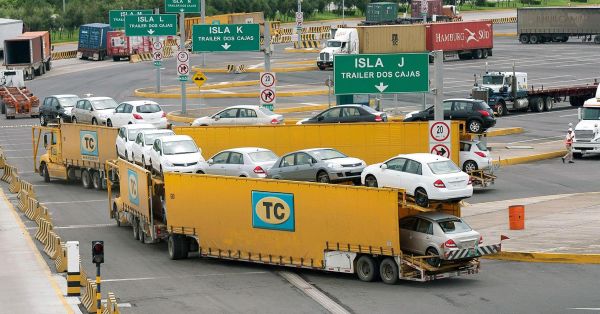With indications growing that the United States, Mexico and Canada are close to agreeing on a framework for altering the North American Free Trade Agreement, the Mexican auto industry is exporting vehicles to the U.S. at a record pace.
New data from the Mexico Automotive Association show vehicle exports to the U.S. in the first quarter climbed 5.3 percent, despite a slight decline in exports in March.
In 2018, automakers have shipped almost 600,000 vehicles to the United States, with those models making up almost 15 percent of U.S. auto sales in the first quarter, according to Ward's Automotive.
The increase this year is driven in part by strong demand for pickups and SUVs, which make up a sizable percentage of the vehicles exported from Mexico. Both General Motors and Fiat Chrysler build pickups in Mexico, while Audi imports its best-selling SUV, the Q5, from that country.
US President Donald Trump has been pushing to alter NAFTA as part of his plan to drive more auto production and hiring among automakers in the United States. In a television interview, Mexico's economy minister indicated there is an 80 percent chance of a new NAFTA agreement by the first week of May.
How that deal is structured and whether it would prompt automakers to scale back production in Mexico remains unclear.
Original article


